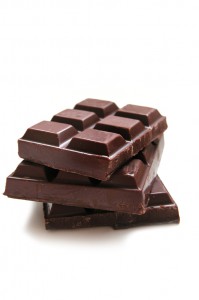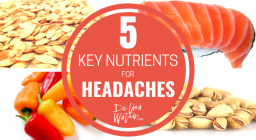
Every pregnancy is different. Sometimes VERY different! When I was pregnant with my first child I had few symptoms (aside from some swelling in my third trimester) and felt vital and healthy for the entire 9 months. This time around, things are different – and uncomfortable! I have been having heartburn.
What is heartburn?
 Heartburn (also known as indigestion, acid reflux or gastroesophageal reflux disease – GERD) is a burning sensation in the esophagus and can have a number of different associated symptoms:
Heartburn (also known as indigestion, acid reflux or gastroesophageal reflux disease – GERD) is a burning sensation in the esophagus and can have a number of different associated symptoms:
- Burning sensation in the chest and throat
- Sour, acidic taste in the mouth
- Pain behind the breastbone or between the shoulder blades
Why does heartburn happen in pregnancy?
For a lot of women (me included!) heartburn is first experienced during pregnancy. About half of all pregnant women experience heartburn. It can occur at any stage but is most common during the second half of pregnancy. Hormonal and physical changes both contribute to symptoms of heartburn in pregnancy.
- During pregnancy, the placenta produces the hormone progesterone which relaxes smooth muscles. Great for the uterus, not so great for the lower esophageal sphincter (LES) – the valve that separates the esophagus from the stomach. This relaxation allows gastric acid to reflux up into the esophagus, causing painful burning sensations. (FYI: this progesterone increase also contributes to constipation in pregnancy.)
- Later in pregnancy, your baby grows larger and takes up more space in your abdomen. This pushes upwards on the stomach and forces some stomach acid up into the esophagus.
What can I do about it?
There are many things you can do to manage your heartburn and decrease discomfort. You don’t need to suffer! Start with the lifestyle and diet changes, and if they are not effective consider trying some of the other options presented or see a Naturopathic Doctor for an individualized plan.
Dietary Changes
- Avoid known heartburn triggers. These are different for everyone but may include carbonated drinks, chocolate, caffeine, citrus fruits, tomatoes, mustard, vinegar, mints, spicy foods, fried or fatty foods.
- Eat small meals frequently. Avoid eating large meals and be sure to chew each bite thoroughly (allowing the digestive enzymes in your mouth to do their job.)
- Limit beverages at mealtime. Water and other fluids can distend the stomach and force food (and acid) up into the esophagus.
- Try a sugar-free chewing gum. This will increase saliva production which can help neutralize acid. (Note – you may need to avoid mint gums if mint is a trigger for your heartburn. I find this tip very helpful when heartburn strikes suddenly – and inconveniently – while I’m at work or away from home.)
- Don’t eat right before bed. Wait two to three hours after eating before lying down.
Lifestyle Changes
- Sleep with your upper body elevated with several pillows or a sleep wedge. This will allow gravity to do its work and keep stomach acid where it belongs.
- Gain weight sensibly.
- Wear comfortable clothing that does not constrict your waist and abdomen.
- Sit upright rather than slouching.
- Don’t smoke. If you haven’t quit before pregnancy, book an appointment to discuss your habit with your Naturopathic Doctor now.
Medications and natural remedies for heartburn in pregnancy
For some women, lifestyle and dietary changes are not enough to manage heartburn symptoms in pregnancy. In these instances a supplement or over-the-counter medication may provide the additional relief needed to get through the full nine months of pregnancy.
Over the Counter Medications
In general I don’t recommend over-the-counter antacids during pregnancy because they don’t address the cause of heartburn (relaxation of the lower esophageal sphincter) but rather function to neutralize stomach acid – a substance that has important digestive properties.
Additionally, some over-the-counter antacids contain aluminum or aspirin (such as Alka-Seltzer) or are high in sodium – all of which are not appropriate during pregnancy.
Generally speaking, the occasional Tums or Rolaid may be helpful – but be sure to check the label and discuss your options with your Naturopathic Doctor or Medical Doctor before taking any mediation.
Supplements and Natural Remedies
As a Naturopathic Doctor I always try to use the smallest intervention necessary to get optimal results. I recommend starting with all of the dietary and lifestyle recommendations above before you try any of the supplements or natural heartburn remedies listed below.
- Fresh pineapple can provide quick relief of heartburn symptoms in some people. Pineapple is a natural source of bromelain and other enzymes. These enzymes speed digestion and can minimize inflammation.
- Slippery elm tea is an amazingly effective and safe way to decrease heartburn symptoms and prevent damage to the esophagus. Slippery elm contains mucilage which soothes and protects the mouth, throat and stomach. Pour two cups of boiling water over one tablespoon of slippery elm herb or powder, cover and let steep for 5 minutes. Drink one cup three times per day or as needed.
- Deglycyrrhizinated licorice (DGL) is a safe alternative to over-the-counter antacids. It supports proper digestion, increases mucous production in the stomach and helps tonify the lower esophageal sphincter. Licorice is not safe in pregnancy, however in DGL the harmful glycyrrhizin has been removed, making it a safe remedy for heartburn in pregnancy. One capsule should be chewed (it must mix with saliva to be effective) as needed.
- Homeopathic remedies are safe for pregnancy and may be used for heartburn. Lycopodium is used for chronic indigestion, gas, bloating and heartburn. Nux vomica for heartburn from coffee or rich foods, or heartburn associated with nausea.
When dealing with heartburn in pregnancy keep in mind that it will end. Most cases of pregnancy heartburn resolve completely when the baby is born. So do your best, try some of the suggestions above and look forward to the day when your baby arrives – for more reasons than one!
Disclaimer
The advice provided in this article is for informational purposes only. It is meant to augment and not replace consultation with a licensed health care provider. Consultation with a Naturopathic Doctor or other primary care provider is recommended for anyone suffering from a health problem.
Selected resources:
Public Health Agency of Canada – Healthy Pregnancy – Heartburn
Aly AM, Al-Alousi L, Salem HA. Licorice: A Possible Anti-inflammatory and Anti-ulcer Drug. AAPS PharmSciTech. 2005; 06(01): E74-E82..

















[…] Copyright: drlisawatson.com […]
Thanks for sharing your thoughts on heartburn. Regards
[…] in the second trimester, heartburn, hemorrhoids and edema (swelling) often develop. A study out of Brazil found that weekly […]
Alka-Seltzer now makes chewable anti-acid tablets that contain no aluminium or aspirin. They work very well and have been the only thing that has helped! Cutting out chocolate and soda has also helped. I love spicy food and not sure I have the will power to avoid it!
Apple Cider Vinegar before every meal has really helped me! I take 1-2 teaspoons (mixed with apple juice) right before eating each meal and it seems to speed up digestion and lessen the bloated feeling. I’ve also been taking DGL as needed to protect my gut as I, like Kelly above, have been enjoying the more spicy foods this pregnancy! Thanks for these recommendations!